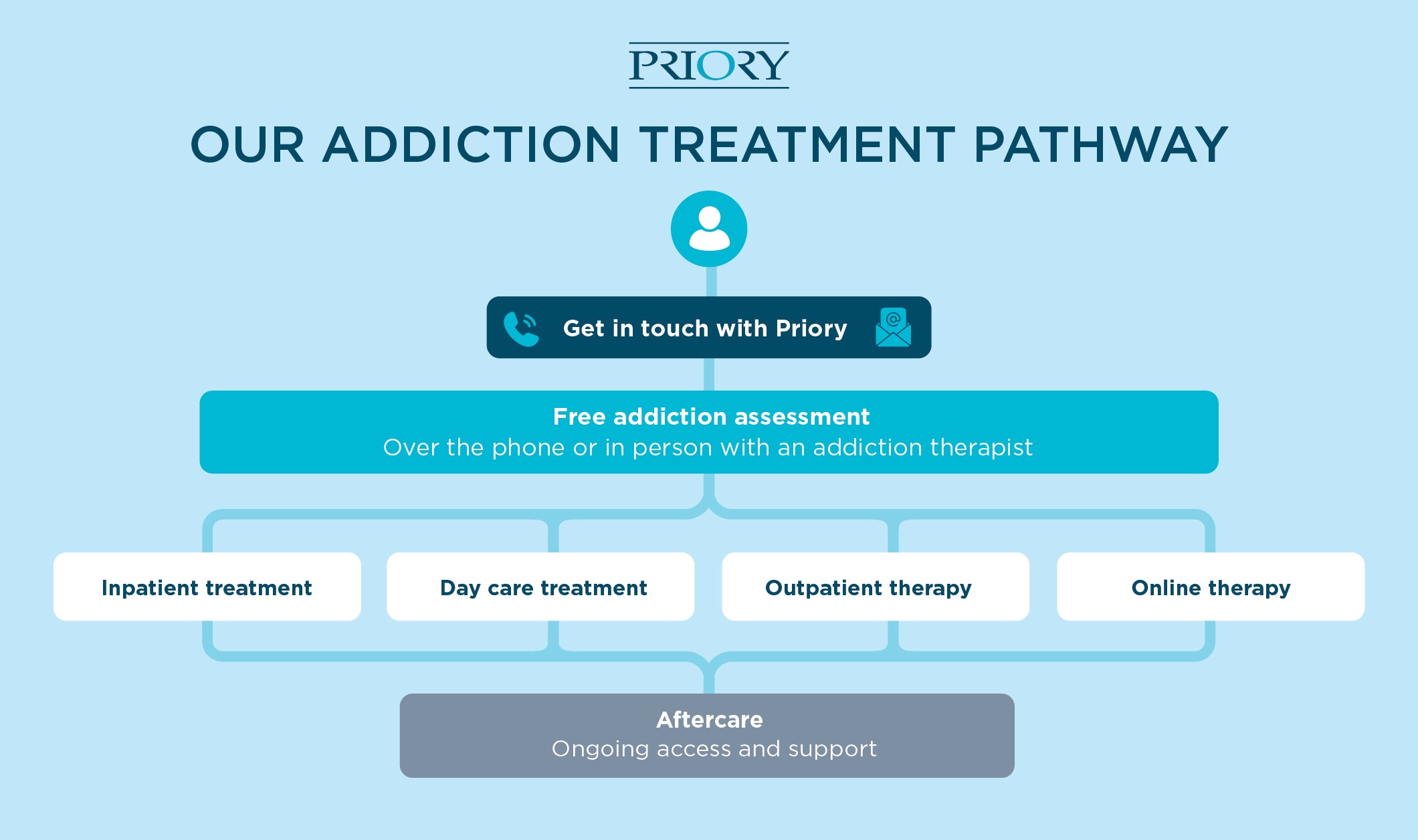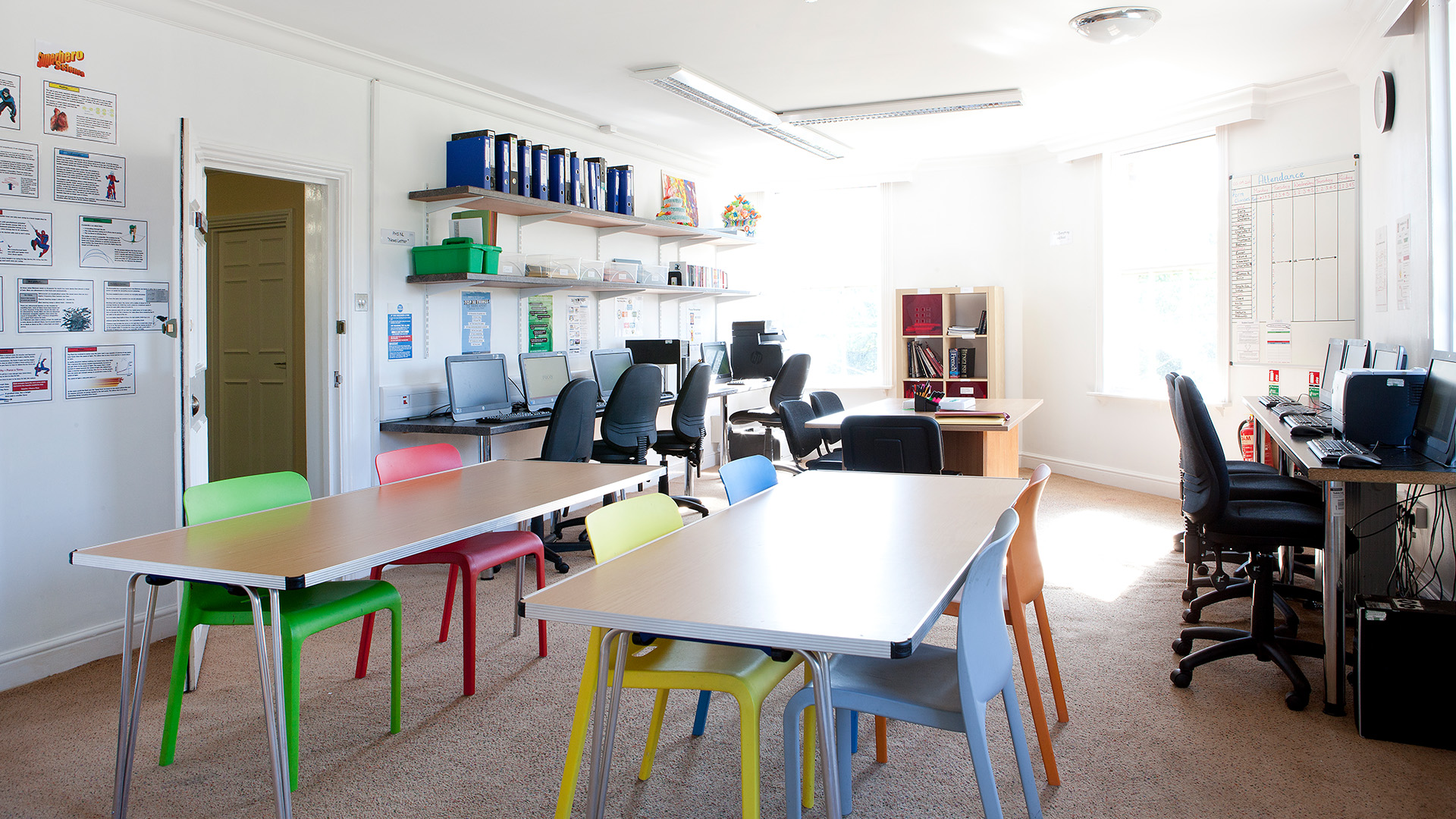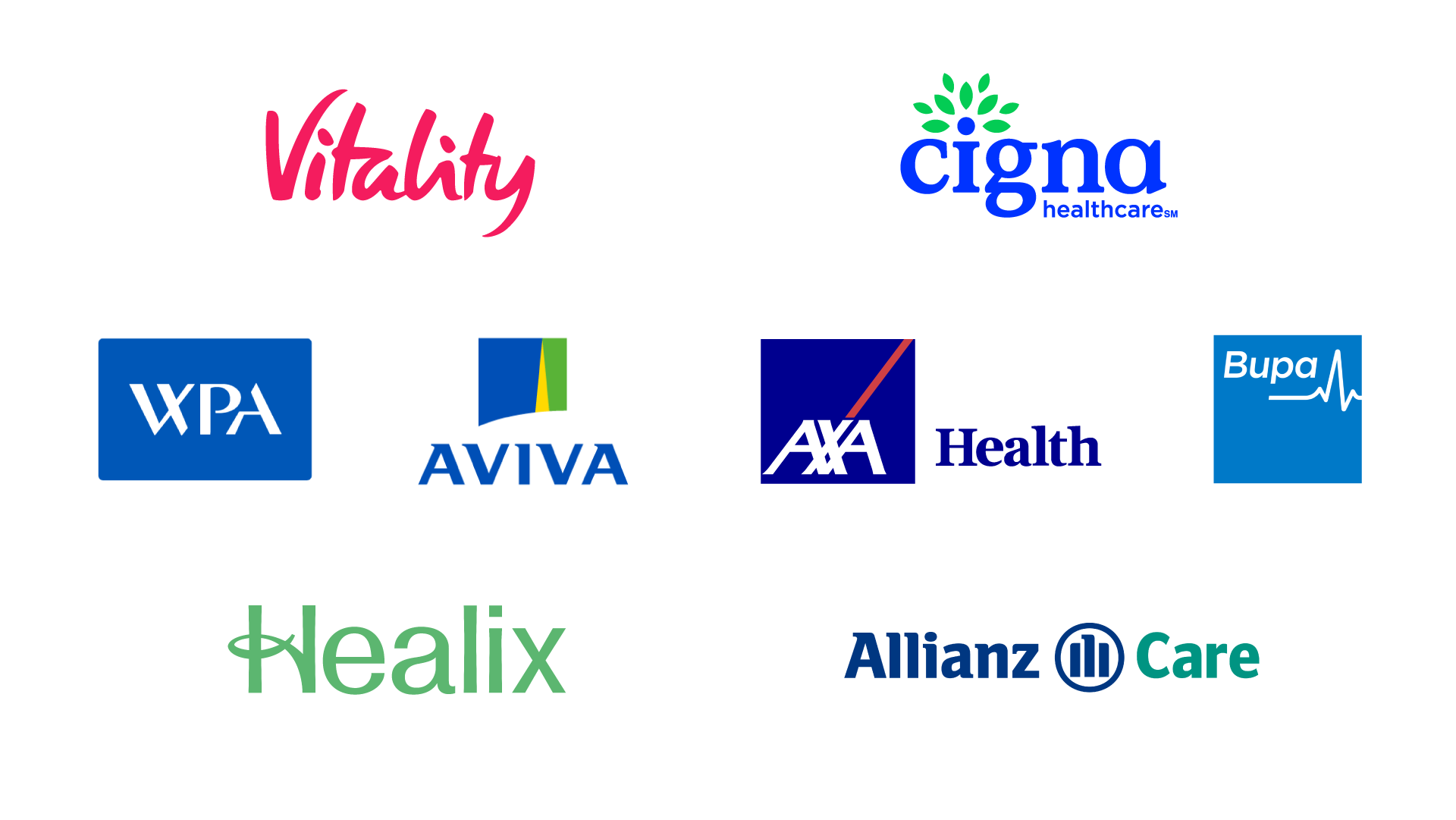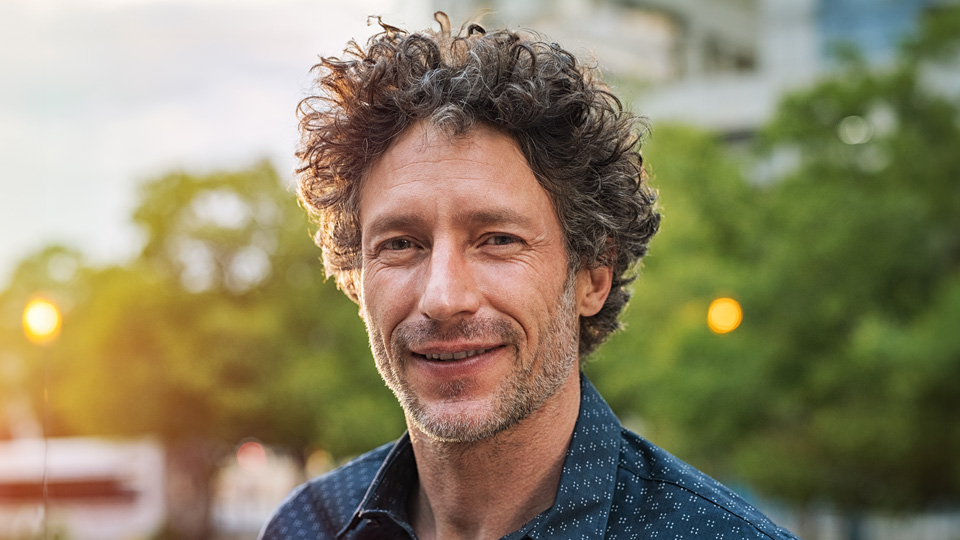Day care
Day care is less intensive than inpatient treatment but provides a more regular schedule than outpatient treatment. Therapy takes place at one of our Priory sites for a set number of full or half-days each week.
Day care works well for people who need structured, ongoing support without requiring 24-hour support. As with outpatient treatment, day care is more suitable for those who have been through a detox programme and are no longer addicted to a substance but require longer-term support to avoid relapses.
Outpatient treatment
Outpatient treatment is when you receive regular therapy at one of our Priory sites, usually for an hourly session every week. With evening and weekend sessions available, you can access treatment around your work or personal commitments.
Outpatient treatment works well for people who need ongoing therapeutic support, without the need for more intensive day care or inpatient treatment. Outpatient treatment is less commonly used for those still intoxicated or using their addictive substance, as detoxes are not delivered to outpatients.
Online therapy
Our online therapy service connects you with accredited therapists via secure video calls, making it possible to engage in therapy from any private location. With appointments available during evenings and weekends, you can fit therapy sessions into your schedule with ease.
Online therapy with Priory is as effective as in-person sessions, utilising evidence-based techniques tailored to your needs. Prioritise your wellbeing with our convenient, professional online therapy service.


























